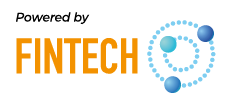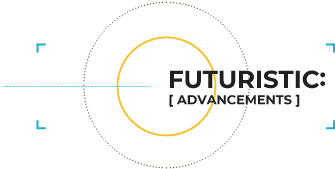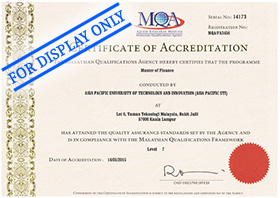You are here
Master of Finance with a specialism in FinTech
APU-DMU DUAL DEGREE PROGRAMME
| |
MORE THAN JUST A FINANCE MASTER PROGRAMME
Digital Transformation for IR4.0 | APU's Master of Finance with a specialism in FinTech programme is designed to provide you with an edge with the latest technologies that are in line with the Industrial Revolution 4.0. Being the first university to offer undergraduate programmes related to FinTech in 2018, APU is the pioneered FinTech educator at both Undergraduate and Postgraduate levels in Malaysia. |
You have the exciting opportunity of enrolling for the APU-CMI Dual Accreditation by registering for a qualification through APU. Students under Master of Finance with a specialism in FinTech will have the option to also opt-in for a CMI L7 Certificate in Strategic Management and Leadership Practice which will be awarded subject to moderation by CMI. |
ADMISSION REQUIREMENTS
| GENERAL REQUIREMENTS | |
• Bachelor’s degree in related fields with a minimum CGPA of 2.75, or its equivalent qualification as accepted by the Senate. | |
Note: The above entry requirements may differ for specific programmes based on the latest programme standards published by Malaysian Qualifications Agency (MQA).
| ENGLISH REQUIREMENTS | |
INTERNATIONAL STUDENTS | • IELTS : 6.5
|
PROGRAMME OUTLINE
This programme is specifically designed to provide:
- Solid in-depth knowledge in the theory and practice of decision making needed to face the challenges in the FinTech industry.
- An understanding of the demanding financial environment and its key areas at a global level.
- Specialised financial knowledge and tools to move from theory to real-world applications needed for a graduate to be at the forefront of the FinTech world.
- FinTech knowledge and technical skill relevant to Finance.
THE BENEFITS OF THE PROGRAMME |
On successful completion of this programme, you will be able to :
- Understand the financial system and the linkages of financial institutions and markets to corporations, individuals and governments.
- Understand the financial technology (FinTech) ecosystem and the developments that shape the financial industry in the 21st century.
- Acquire the necessary skills to be a successful financial enthusiast championing financial solutions in the 21st century.
- Interpret principles & understandings of financial workings in the world of FinTech.
- Apply qualitative and quantitative techniques in analysing problems in Finance & Technology and solve complex, unstructured finance or investment related problems.
- Perform advanced methods and procedures in solving complex problems by extending the knowledge of the Finance discipline into more specialized areas.
- Employ digital skills such as word processing, the web and econometric packages in analysing financial data while conducting research in a professional field.
- Demonstrate advanced numeracy skills in solving complex problems.
- Apply experience learned and solid understanding of the realities of a business especially in FinTech related areas.
WHO SHOULD ATTEND |
This degree is intended for finance professionals looking to widen their skill base or students who have made a professional commitment to pursue a career in the financial service industry with a focus on FinTech skills and who have studied finance in an undergraduate degree and interested in equipping with the most comprehensive array of analytical tools and techniques. This Master of Finance (FinTech) could be a stepping stone to one of the most sought-after careers in the finance sectors broadly defined as corporate finance, security analysis, portfolio management, financial technology, and the functioning of financial institutions and markets.
MODULES & PROJECT |
This programme comprises 10 coursework modules and a Project.
PRE-REQUISITE MODULES (FOR NON-COMPUTING STUDENTS) | |
| |
CORE MODULES | |
|
|
PROJECT |
You will be expected to conduct effective research in relation to FinTech for both academic and industrial purposes. The project will provide you with an opportunity to study a topic related to FinTech in the form of a written report. You are required to develop your chosen research study by conducting literature reviews, engaging with research methodology, developing skills in data collection and analysis. At the end of the study, you will produce and present a report conforming to the conventions of academic writing.
CAREER OPTIONS
|
|
FINTECH FOR THE FUTURE
Financial Technology (FinTech) is gaining momentum year-on-year and creating a huge demand for professionals with specific FinTech skills. Traditional accounting and finance industry is getting digitally transformed. To cater to the skill gap in the Financial Services the technology application has become an essential part of the graduate skill.
Traditional financial institutions and FinTech start-ups alike are looking for more candidates who specialise in Artificial Intelligence, Machine Learning, Data Science. According to Bloomberg reporting and data from LinkedIn[1], job listings requiring these skills in the financial services industry increased nearly 60% in the past year. APU Master of Finance (FinTech) programme is designed to cater to the increased demand for finance graduates with FinTech skills.
|
| | | |
60% of consumers want to transact business with financial institutions with a single platform, such as social media or mobile banking apps. | "Global FinTech market investments have seen a 28% year-on-year rise from 2018 to 2019." Tranglo | In 2017, 88% of incumbent financial institutions feared that they would lose money to the disruptive innovation of fintech companies, but 82% plan to partner with fintech startups in the next 3–5 years. (PwC) | In 2019, 64% of consumers worldwide have used one or more fintech platforms, up from 33% in 2017. |
| "Financial institutions are becoming more technology focused. We see it as the evolving intersection of financial services and technology. Looking forward, we expect FinTech disruptors to continue to expand into other areas within financial services." - Pricewaterhouse Coopers (PwC) |

| "FinTech is changing businesses and customers rapidly. Those that embrace FinTech will stay at the forefront of their markets; those that don't will lose out on opportunities, customers, and market share." - Bernard Marr, Forbes |
COURSE FEES
Malaysian Students | International Students |
RM 34,800 | RM 38,800 (USD 9,700) |
* Fees stated above do not include Enrolment Fees, Registration Fees and other Miscellaneous Fees. Please refer to Fee Guide for details.
MQA ACCREDITATION
(R2/0412/7/0002)(10/28)(MQA/FA3456) |
| All information is correct at the time of publication, but is subject to change in the interest of continuing improvement. |
Master of Accounting & Finance Programmes |












